The days of fire and brimstone as motivation fodder are over. In with locavorism and Buddhas on front porches is the mandate to send out directional messages that are contextualized in inclusivity. And not just the standardization of handicapped ramps and diversity curriculum. In the postmodern era we are in, each of us with a message will have to do some rigorous looking at our underlying assumptions, or off we go to the guillotine.
Unless of course you want to become just another pundit taking things out of context just so you can hear yourself talk. To actually contribute to an emerging movement is a somewhat strategic affair. All this came to light for me as I was midway through a seemingly controversial feature article in Brain, Child by Martha Nichols called “Guilt Trip into the Woods? Do Kids Really Need Nature?” She got my attention: a day without any outdoor time feels tantamount to child abuse. But Nichols laid out a rather compelling argument: Not that kids don’t need nature, but that perhaps not all kids need nature quite the way the leaders of the back-to-nature movement say they do.
As Nichols was ripping the authors of two different kids-must-have-nature books a new one, what struck me is that she was really pointing to a middle path. One that looked more like: “hey, nature is great, but so is technology (and lots of other activities and contexts). Let’s pay more attention to our kids and get to know them, find out what they are about, what turns them on.” She also, rather insightfully, points out that “whether conservatives are wearing pinstripes or all-natural fabrics, the bottom line is that they don’t want the world to change.”
In a world that seems increasingly polarized, and as a married white mostly liberal thinking woman, who sees a path based on attunement, deep wonder and love as the way to a new paradigm of living where there is the felt and known experience of enough for all, I have to wonder: in what ways do I contribute to the polarization? How do I resist the inevitable and always changing state that life is? What assumptions, and what privileges, go unnoted in my day to day living and thinking? How do I demonize my own inner conservative, or shut down the truth of my liberal thinking heart because I am afraid I will go bankrupt? (Humor in the face of uncertainty is a Tool of Sufficiency.)
As a change agent, it is my job to consider context. It is my job to grow my capacity as broad and wide as possible, to cast a net that includes as many voices – the voices of wonder and the voices of disdain, the voices of those with Buddhas on their front porches and the ones who shout fighting words about health care reform. Are we not all just trying to cope with our suffering? It is clear to me that to usher a new way of thinking into being – where enough is co-created in collaboration and a sustained commitment is kept alive as a collective – is to include as many people with their fears, worries, passions and assumptions as possible. Inclusivity, and listening and compassion as its partners, is the antidote to the fear and scarcity that is projected even by nature loving conservatives.



